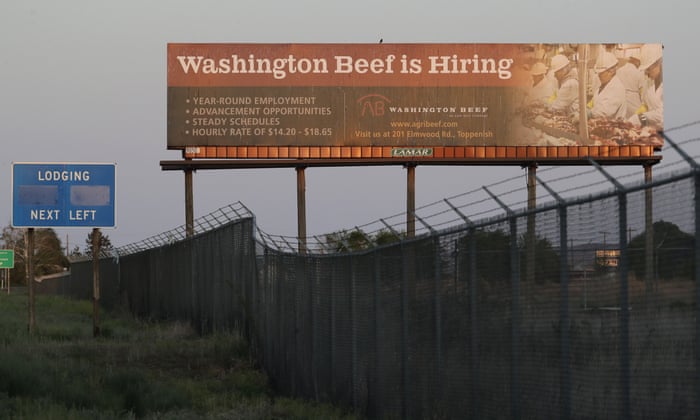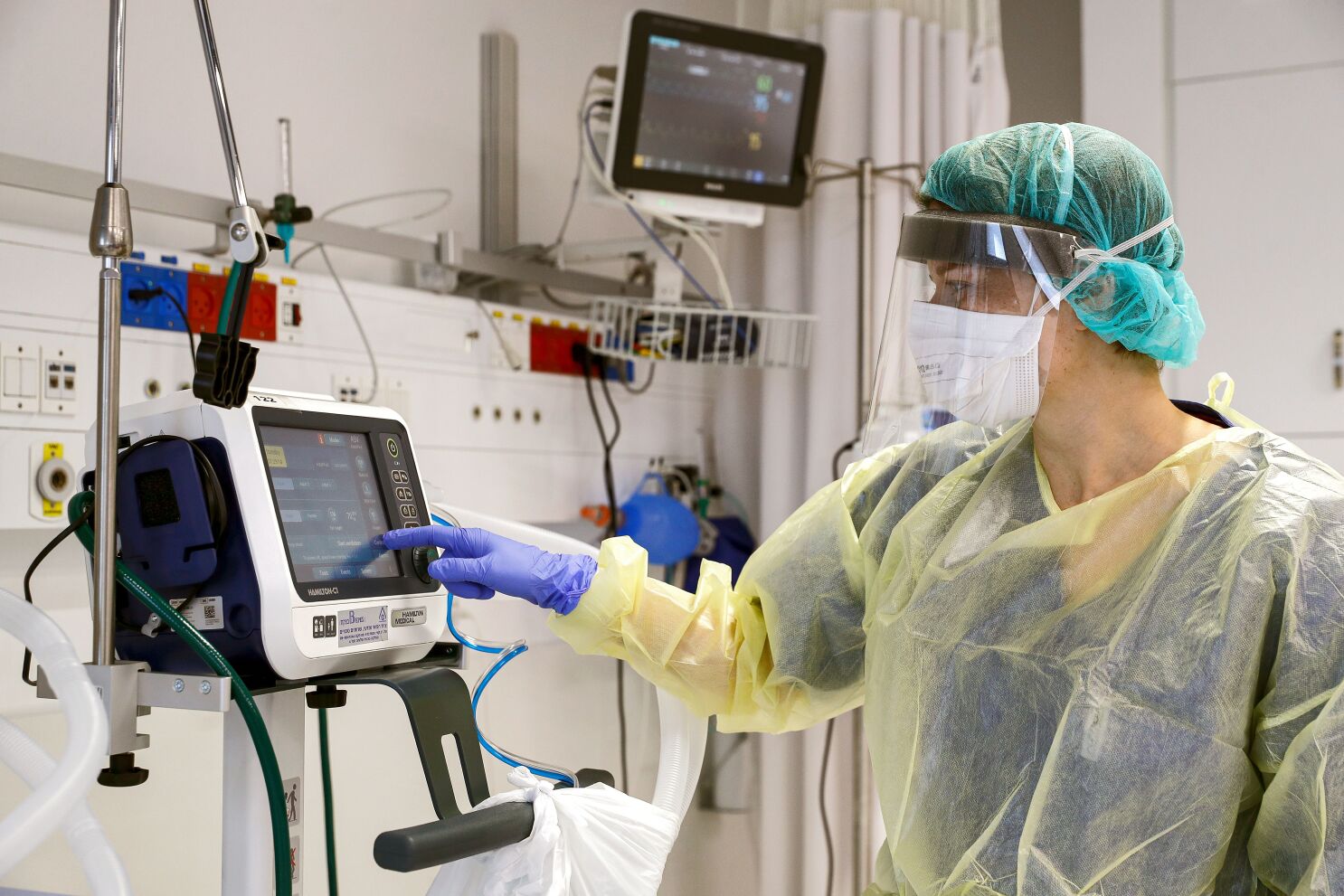COVID-19: The Bear for the Economy and the Eagle in Congress
Hello readers of our blog! I would once again like to apologize for not posting in some time as we were preoccupied in a multitude of exams, projects, and extracurricular activities. We will start to post on a more regular basis!
Today, I would like to talk about US legislation during the COVID-19 pandemic, effects on different sectors of the economy, and effects on the medical equipment chain. As the number of daily cases are decreasing and many states are lifting restrictions, the stress of the pandemic surely seems to be loosening up. But, boy oh boy, did it leave its toll on the entire world. Getting stuck inside your house with your family may seem ideal for some of you antisocial people out there (*cough cough* me *cough cough), but there really is a limit for everything. I don't know how many more quarantine challenges I can do before I lose my mind!
All jokes aside, I will get to the point. COVID-19 was not good for the economy or the people who supported it. Period.
-----------------------------------------------------------------------------------------------------------------
Economy and Industries
➸ With the onset of the COVID-19, the growing global economy has been greatly hindered. International GDP's are expected to fall by billions, and the economic growth rate is to fall be 20%. And the main reason for this is us, the people. The actions of the consumers practically determine the economy, and predicting these actions helps companies earn profits. When we are all forced to quarantine ourselves in our homes, industries such as travel, airlines, and tourism really got a curveball. In addition, retail stores, malls, and gas stations also took a hit. To put this into perspective, the flight frequency decreased by about 65% following the outbreak!
That's not to say that all industries got hurt. In particular, e-commerce, food delivery and distribution, and healthcare had an unprecedented increase in demand. You can only go so long without ordering some Taco Bell or going out to shop with your friends. Hey, it may not be ideal, but online shopping Zoom calls with your friends is better than not shopping at all!
➸ The stock market following the outbreak went down faster than my self-esteem following rejection. 😂 In all seriousness, the fall of the stock market is nothing to be joked about. When the daily cases in the US slowly starting increasing and restrictive measures were slowly being instated, shareholders and investors started analyzing data showing a decrease in factory output and retail sales following the outbreak of a pandemic.
And as any smart investors would do, they started to sell their shares before they lost too much money. This led to a bear market, where people on Wall Street recorded a continuous drop in the stop market due to investor paranoia. On March 16, the Dow Jones Industrial Average fell by 2,997 points, the second largest single day drop in history. And unfortunately, this day resulted in the closing of multiple stores, factories, and businesses.
The biggest result from this was the astounding 36,000,000 people left unemployed. In a time where the unemployment rate was falling, COVID-19 really threw us in for a loop. And as result, people relying on these jobs were unable to put food on the table or a roof over their heads, as many were left with little money and were facing eviction notices from landlords.
➸ Almost half (I repeat half) of all COVID-19 hotspots in the United States have been linked to meat processing plants. I know, I know, that's a bold statement. Where many industries and factories have shut down in such unexpected times, workers at meat processing plants are out there putting their blood, sweat, and tears into their work.
The issue, however, lies in the fact that these people do not maintain social distancing procedures as that is highly inefficient in assembly line procedures. These people work for prolonged periods without proper safety measures (such as wearing masks) and work in a confine space with warm air- a perfect incubators for those little viral particles. Almost 10,000 meat plant workers have been infected, and many of these poor workers unknowingly facilitated the spread of the virus amongst others as well, including farmers and transport workers. This is especially concerning for majority of the meat-eating population, as no one would want to eat meat coming from contaminated plants.
Why, you may ask, are these plants still open. It's because of the government stating that these plants are critical infrastructure needed to feed the people of the United States. There was also a misconception that these plants were mandated to stay open. While meat plants may be critical to our diets, it should not come at the expense of the safety of the workers that ensure that.
➸ The healthcare supply chain also took a big hit. As many factories closed and product distribution experienced an overall decrease, the medical device and healthcare supply chain was greatly hurt. Majority of American medical supplies, including masks, are manufactured in China. And as China was the first country to face the wrath of the coronavirus, many of these medical devices/equipment got used up there. Ironically, the US donated some medical supplied to China as well, when they could've been saved for American hospitals as US has the most COVID-19 cases in the entire world. International trade and distribution have been greatly hindered, and as a result American hospitals are experiencing a shortage in medical supplies. Hopefully, the government passes a bill promoting medical supply production, but for now, the most we can do is donate what we have while staying safe.
Government Action
What did the government of the United States due in response to the economical and social issues resulting from the coronavirus? Well, a series of bills were passed, and they will be listed here.
⇨Coronavirus Preparedness and Response Supplemental Appropriations Act, 2020 — Enacted March 4, 2020. This provided government funding for the production of medical supplies and vaccine research, as well as supported small businesses and hospitals (both domestic and international) through funding.
⇨Families First Coronavirus Response Act — Enacted March 18, 2020. This bill ensured free coronavirus testing, paid leave, increased unemployment insurance, and increased federal Medicaid funding.
⇨Coronavirus Aid, Relief, and Economic Security Act — Enacted March 27, 2020. This was a bill that provided $2 trillion for coronavirus relief. It sent $1,200 to each American making $75,000 a year or less, added $600/week to unemployment benefits for 4 months, gave $100 billion to healthcare facilities, and ensured government subsidies to many of the impacted industries.
⇨Paycheck Protection Program and Health Care Enhancement Act — Enacted April 24, 2020. This was a $484 billion bill that provided relief to small businesses and coronavirus testing facilities through the Paycheck Protection Program (PPP).
That surely was a long post, and if you made it this far, I want to thank you for reading. The economy is vital to the future of the world and it does need to be relieved and regulated in times like this. That being said, however, safety comes first. As restrictions are being removed, make sure to continue to social distance and wear masks to ensure that you don't end up testing positive, especially when it seems like it is going away. Thank you once again, and be sure to leave a comment and subscribe to email notifications on the left!
Meme
Sources (Images and Information):
- https://www.google.com/url?sa=t&rct=j&q=&esrc=s&source=web&cd=&ved=2ahUKEwiYmbOE2PLpAhWRj3IEHb9nBFgQFjAKegQICBAB&url=https%3A%2F%2Fwww.theguardian.com%2Fworld%2F2020%2Fmay%2F15%2Fus-coronavirus-meat-packing-plants-food&usg=AOvVaw3ElBOeVDdF27lEyzl61WjC
- https://www.statista.com/topics/6139/covid-19-impact-on-the-global-economy/
- https://www.nytimes.com/2020/04/15/business/stock-market-today-coronavirus.html
- https://www.bbc.com/news/business-51706225
- https://www.govtrack.us/covid-19
- https://www.mpo-mag.com/issues/2020-04-01/view_editorials/covid-19s-lasting-impact-on-healthcares-supply-chain/
- https://www.fool.com/investing/2020/03/09/why-shares-of-2u-dropped-today.aspx
- https://www.vox.com/2020/3/16/21182341/dow-jones-biggest-point-drop-coronavirus-3000
- https://www.nytimes.com/2020/05/14/business/economy/coronavirus-unemployment-claims.html
- https://www.ocregister.com/2020/05/27/lockouts-to-resume-in-orange-county-for-pre-covid-eviction-cases/
- https://www.latimes.com/politics/story/2020-03-20/disaster-foretold-shortages-ventilators-medical-supplies-warned-about
- https://www.forbes.com/sites/zackfriedman/2020/05/02/student-loans-forgiveness-congress/#54e3fb8444d5
Total Confirmed Cases:
Global: 7,313,661
United States: 1,996,960
New Jersey: 165,346
Data Sources:









Comments
Post a Comment